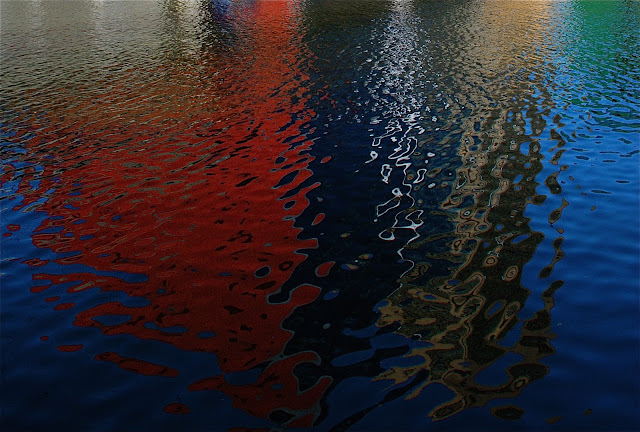It is always tempting to think of oneself as essentially alone in this world — alone in birth, alone in life, and alone in death. However comforting this sentiment might be when one is feeling a bit lonely, the truth is that none of us is ever truly alone. Each and every life is always unfolding in relationship to the unfolding of all other things in existence, both animate and inanimate. Just as there is a dance between night and day, a dance between grief and joy, a dance between shore and sea, there is an undeniable dance between each of us and the myriad things that lie beyond our control. We're always in a conversation with everything that happens in our environment, especially those things that command our attention.
This is what poet and philosopher David Whyte has referred to as "the conversational nature of reality," and he has written a very fine poem that captures its essence. Describing his inspiration for the poem in a recent interview on the excellent radio/podcast program On Being, Whyte said this:
[T]his piece is written almost like a conversation in the mirror, trying to remind myself what's first-order. And we have so many allies in this world, including just the color blue in the sky, which we're not paying attention to, or the breeze, or the ground beneath our feet. And so this is an invitation to come out of abstraction and back to the world again. It's called "Everything is Waiting For You."
So here's the poem. Enjoy.
Everything is Waiting for You
(after Derek Mahon)
Your great mistake is to act the drama
as if you were alone. As if life
were a progressive and cunning crime
with no witness to the tiny hidden
transgressions. To feel abandoned is to deny
the intimacy of your surroundings. Surely,
even you, at times, have felt the grand array;
the swelling presence, and the chorus, crowding
out your solo voice. You must note
the way the soap dish enables you,
or the window latch grants you freedom.
Alertness is the hidden discipline of familiarity.
The stairs are your mentor of things
to come, the doors have always been there
to frighten you and invite you,
and the tiny speaker in the phone
is your dream-ladder to divinity.
Put down the weight of your aloneness and ease into
the conversation. The kettle is singing
even as it pours you a drink, the cooking pots
have left their arrogant aloofness and
seen the good in you at last. All the birds
and creatures of the world are unutterably
themselves. Everything is waiting for you.





